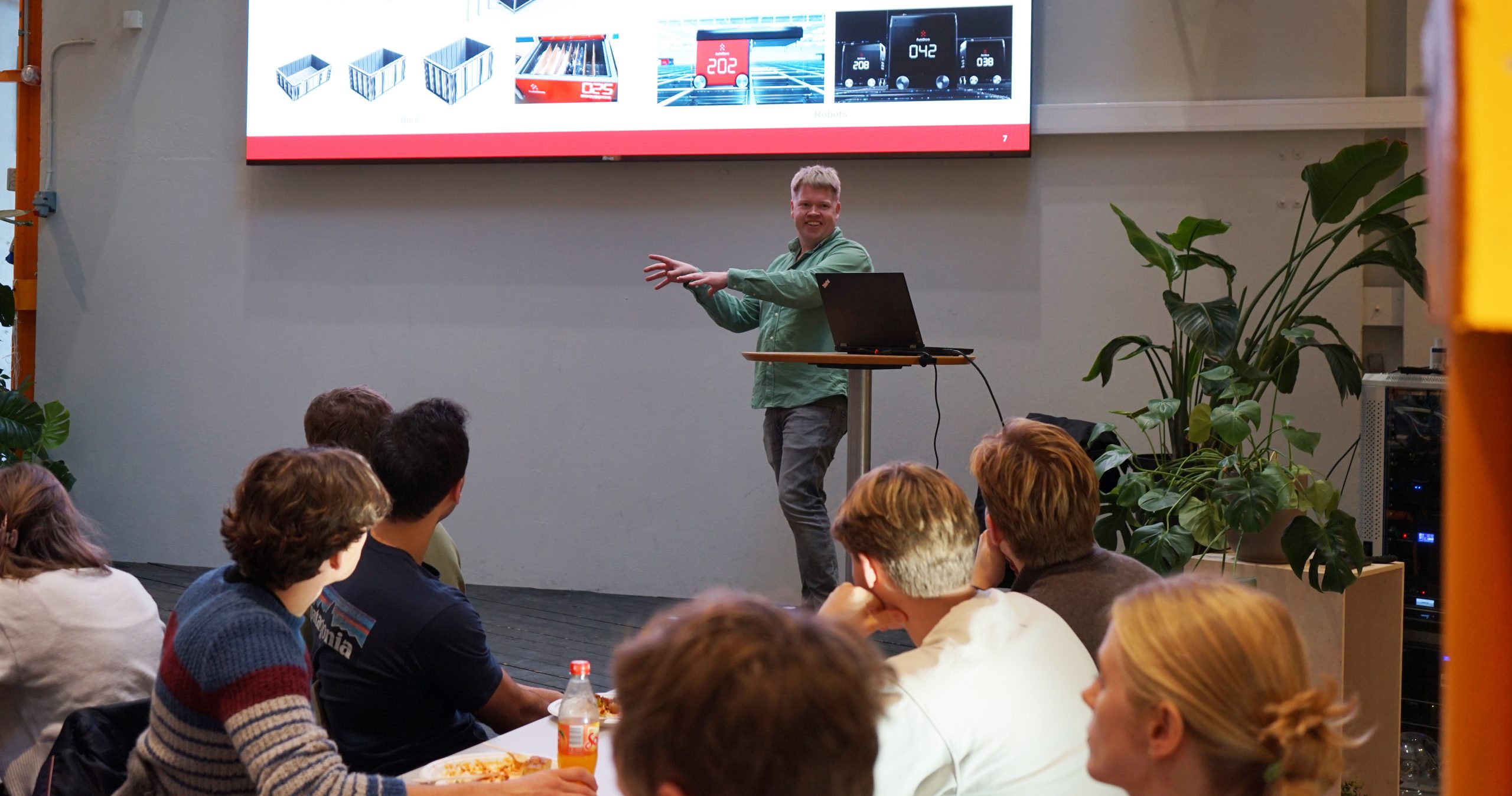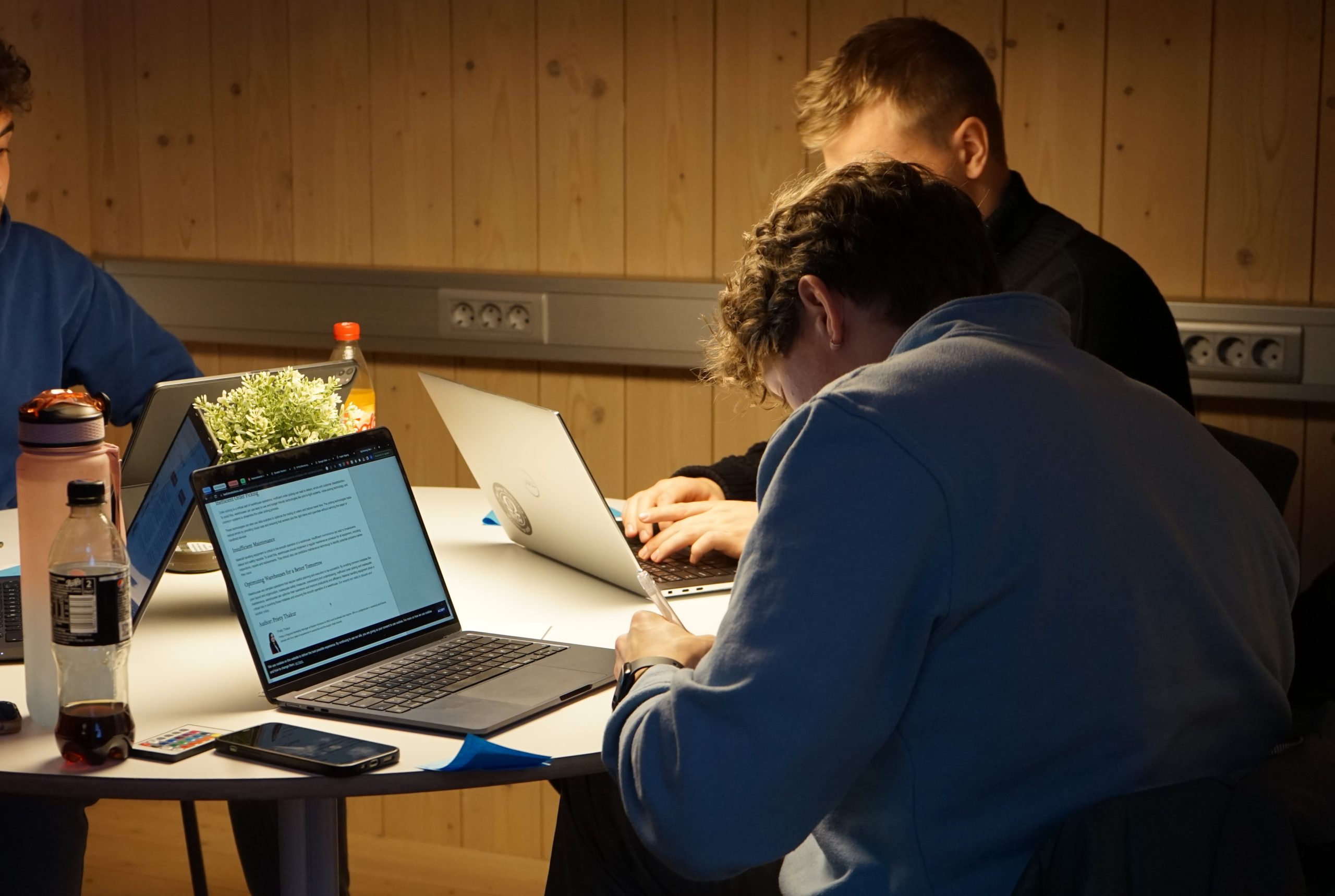
The workshop kicked off with a presentation from Element Logic, setting the stage for the day’s activities. In addition to introducing the students to the company and the market which in we operate in, the introduction outlined the approach for working with the cases as well as equipping the students with concepts and practical models. These tools were designed to enable them to dive into the cases effectively, fostering a productive learning environment.
Moving on, the workshop consisted of two cases that the students could choose from. First, a deep dive into the future of warehouse management, focusing on the digitalization and automation of traditional warehouses. The second case delved into the data-driven world with the focus on optimizing warehouse performance.
Reimagining Warehouses
The first case explored the complexities of implementing a comprehensive sensor network. The emphasis was on the importance of finding the right mix of technology and strategy – from sensor selection and placement to cost considerations and efficient data transmission. This case highlighted Element Logic’s approach in transforming warehouses into agile, data-driven facilities capable of adapting to dynamic market demands.
Data-Driven Mastery
The second case took a closer look at the power of analytics in warehouse operations. Here, we delved into how a company can utilize data collected over 1.5 years from various warehouses. The session was an interactive exploration of extracting actionable insights, showcasing how statistical models and machine learning can lead to significant operational improvements and cost efficiencies.

Throughout the workshop, the aim was to provide a realistic glimpse into the challenges and opportunities in the world of warehouse management. By presenting these cases, the hope was to instill a sense of practicality and purpose in the theoretical knowledge the students possess.
The workshop, featuring a diverse mix of students produced a wide range of creative solutions. In the group of 40 participating students, there was an equal representation from two fields: logistics engineering and cybernetics and robotics. One team proposed a system aimed at reducing food waste through tracking of expiration dates. Another group employed Pareto analysis in conjunction with drone data and automated trucks, to result in a highly efficient optimization of warehouse layouts. Tackling issue of inventory inaccuracies, another team recommended implementation of sensors. To streamline internal transport and mitigate inventory discrepancies, another group conducted a thorough analysis of product trends. Lastly, a team suggested to strategically align product placement with store sales data, effectively minimizing storage durations. Collectively, these solutions not only reflected the students’ understanding of warehouse management intricacies but also highlighted their adeptness in addressing real-world logistical challenges.
A Platform for Innovation and Collaboration
The partnership with NTNU and the students is more than just a transfer of knowledge – it is a platform for innovation and collaboration. We believe that by sharing our experiences and insights, we can help shape the future of the industry and empower students to become the change-makers of tomorrow.
Hosting workshops and arranging summer internships with students from NTNU has become a tradition for Element Logic and we are committed to continuing collaborations, fostering a bridge between academic learning and industry application, and contributing to the advancement of technology in warehouse management.
